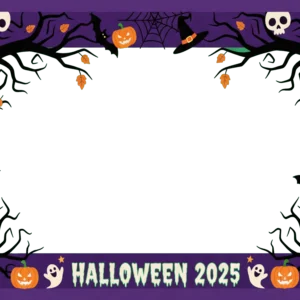In an unexpected turn of events, Industrial Inspection & Consulting has ventured into a new realm by launching a service that offers to CT scan sealed packs of trading cards for $75. Initially, this move was merely to showcase the precision of their CT scanning technology, but it quickly became a topic of interest in the collecting community.
Just a few weeks ago, Industrial Inspection made waves by performing a CT scan on a sealed pack of Pokémon cards, highlighting the capabilities of their technology. While they had initially stated that they had no intentions of delving into the realm of card scanning services, the company made a U-turn earlier this week, officially adding trading cards to their list of CT scanning services.
The Service
For a flat fee of $75, Industrial Inspection is offering to CT scan sealed packs of trading cards, complete with the necessary viewing program for analyzing the contents. There are plans in the pipeline to extend this service to include sealed boxes as early as this week.
Industry Reactions
The introduction of this technology has sparked mixed reactions within the collecting community. Some industry insiders have expressed skepticism about the widespread adoption of the service, hinting that its relevance might be mainly confined to high-end products. Questions have been raised regarding whether collectors will be equipped to decipher the scans accurately without prior experience.
According to Keith Irwin, the general manager of Industrial Inspection, the company received an influx of ten requests to scan packs within the first two hours of posting their initial case study on YouTube. Subsequently, traffic to their website skyrocketed by over 17,000 percent.
“We began receiving a lot of interest,” Irwin shared with cllct. “Not just from individuals and collectors, but also from auction houses. It seems like there is a mixture of excitement and apprehension, and everybody wants to be part of it. If we don’t provide this service, someone else surely will.”
While Irwin refrained from divulging further details due to non-disclosure agreements, he did mention that most inquiries revolved around the capabilities of the technology. Speculation is rife that group breakers might leverage this technology to identify and retain the best boxes, while others are considering its use for authenticating sealed vintage boxes.
Community Concerns
The collecting community is fraught with anxiety about the repercussions of this newfound technology. Prior to the recent case studies, many collectors were unaware of the potential applications of X-ray technology in such a domain. Now, the option to scan packs for a nominal fee of $75 has ignited substantial debate.
A considerable portion of the community has criticized the practice, but Irwin and Industrial Inspection argue that it is vital for the service to be accessible to all, not just limited to high-end collectors.
“Our aim is to make this service inclusive for everyone,” Irwin emphasized. “We aspire to be the positive force in an area that isn’t disappearing. If we don’t offer this service, others might, potentially in less principled manners.”
Ethical Considerations
The introduction of this service has raised an array of ethical and moral quandaries. While collaborating with auction houses or authenticators could have positive implications, it also runs the risk of restricting access for individual collectors eager to verify their collections. Distinguishing between favorable and unfavorable utilization scenarios poses a challenge.
“The paramount question is: If we abstain from it, what transpires?” queried Irwin. “The reality is, if we shy away, others will step in. We choose to participate with the conscientiousness that we can act responsibly.”
Despite their well-meaning intentions, the potential impact on the secondary market, particularly for high-end products, is substantial. While scanning packs or boxes of low- and mid-tier products might not be economically viable, for vintage sports cards, early Pokémon releases, and high-end ultra-modern sets, this technology could be a game-changer.
It remains uncertain if major trading card manufacturers are taking measures to safeguard consumers. Requests for comments from Panini America, Topps, and Upper Deck remained unanswered at publication.
Future of Card Scanning
Irwin indicated that Industrial Inspection could thrive sans the card scanning service, though it does present a lucrative revenue avenue. A plausible solution for card manufacturers could entail utilizing dosimeter stickers that alter color upon radiation exposure, signifying whether a box has been scanned.
For now, Industrial Inspection is forging ahead with scanning packs and, in due course, boxes. They are also contemplating scanning encapsulated sealed packs for collectors keen on unwrapping them.
Irrespective of the services on offer, the ethical and moral considerations will remain an enduring issue for Industrial Inspection. The company’s website acknowledges, “Pandora’s box is open,” a sentiment that seems to resonate with collectors.
“We have unquestionably struck a chord within the community,” noted Irwin. “People have invested their lives in these sectors, prompting us to ponder if we made the right move. However, if we hadn’t disclosed this and offered it as a service, people would have resorted to secretive means. We’re in a predicament where we err by staying inactive, yet we also err by taking action.”


